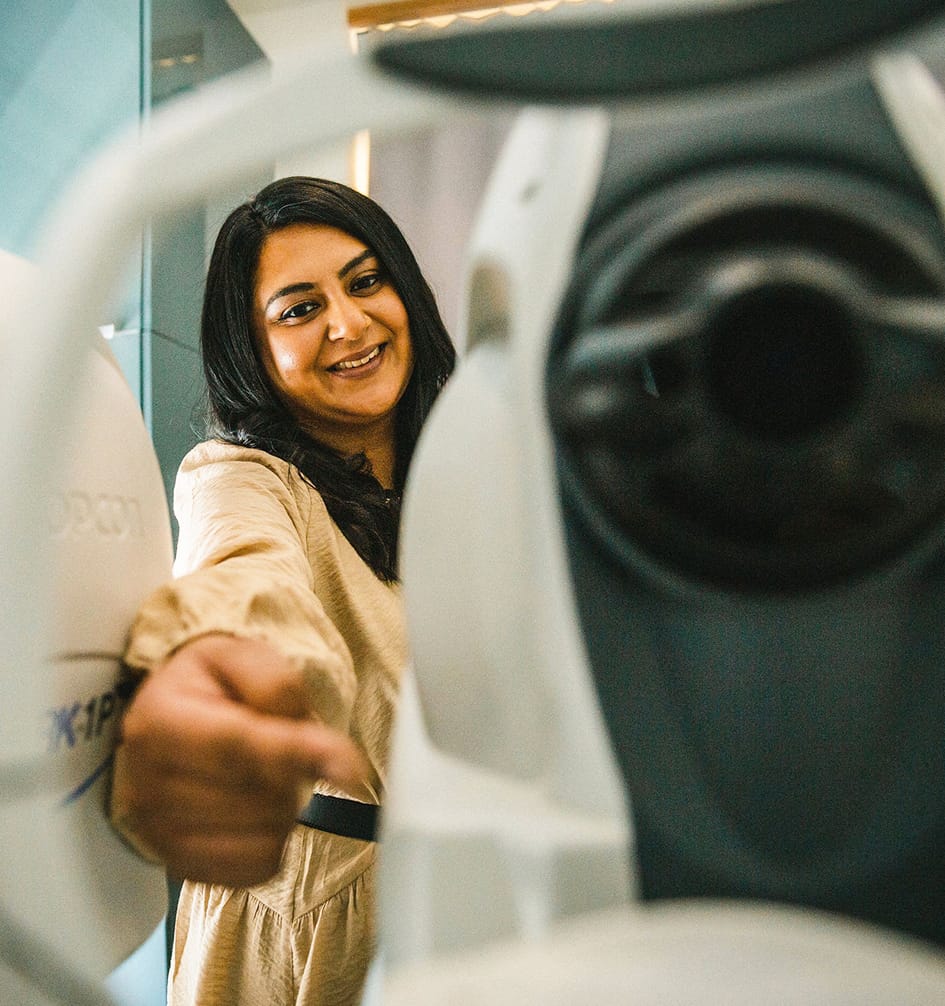Protect Your Eyes from the Complications of Diabetes
If you have diabetes, you’re likely familiar with most of the risks that come with it. But are you aware that diabetes can increase your risk of developing a sight-threatening eye disease that can impact your vision and ocular health? Because of these risks, it’s essential you undergo annual eye exams, which play a significant role in protecting your vision.
Your eyes are the only place in the body where your doctor can directly view your blood vessels. In some cases, your optometrist may be able to detect the first signs of diabetes before your family doctor even diagnoses you.
For the best line of defence against diabetes-related eye problems, please visit us at Vancouver Block Optometrists for comprehensive diabetic eye exams.
Diabetes & the Eyes
Diabetes affects how your body uses or produces insulin. Insulin helps regulate your blood sugar levels. When your body can’t process blood sugar, it remains in your bloodstream, damaging your blood vessels. Because the vessels in your eyes are so small and delicate, they’re easily damaged.
Diabetes increases your risk of developing cataracts, glaucoma, diabetic retinopathy, and diabetic macular edema. These conditions can lead to vision loss and blindness, making diabetes the single leading cause of blindness in Canada.
Diabetic Retinopathy
Diabetic retinopathy is an eye disease linked to diabetes. It occurs when the tiny blood vessels in the retina are damaged by high blood sugar levels. These damaged vessels can swell, leak, and burst, which can cause scarring, increase intraocular pressure, and impair your vision.
Diabetic retinopathy progresses in stages. The early stage of diabetic retinopathy occurs when the damaged vessels begin to weaken and bulge. As the disease worsens, the weakened blood vessels can break, leak blood and fluid, and close off, prompting new, abnormal blood vessels to grow on the retina.
The later stage of diabetic retinopathy is quite serious and can lead to permanent damage and blindness, so it’s crucial to diagnose the disease early to prevent vision loss.
Diabetic Macular Edema
Diabetic macular edema is a complication of diabetic retinopathy and occurs when leaking fluids accumulate under the macula, making it swell.
Swelling can cause the macula to deteriorate and lead to vision loss.
Cataracts
Cataracts cause the clouding of the eye’s natural lens. Nearly everyone develops cataracts, most often after age 60. They usually appear slowly and without pain. Patients with diabetes are 5 times more likely to develop cataracts and develop them at an earlier age.
Glaucoma
Glaucoma is a group of eye diseases that progressively damage the optic nerve. Glaucoma is often characterized by high intraocular pressure (IOP), and since an accumulation of fluid around the retina caused by diabetic retinopathy can increase IOP, there’s a connection between glaucoma and diabetes.
Patients with diabetes are twice as likely to develop glaucoma. Glaucoma can progress without symptoms and can cause blindness, so it’s essential to undergo regular eye exams if you have diabetes.
How We Detect Diabetic Eye Diseases
At Vancouver Block Optometrists, we’ve invested in advanced diagnostic technology that helps us detect early signs of diabetic eye diseases.
Optos
The Optos ultra-widefield retinal imaging tool is a high-powered camera that produces colour images of the retina, optic disc, and ocular blood vessels. This imaging equipment is noninvasive and used to detect abnormalities in the back of the eye.
OCT
Optical coherence tomography (OCT) is a noninvasive imaging test that takes cross-sectional images of the retina. It uses light to measure the different retinal layers and can be used to detect and monitor various eye conditions, including diabetic eye diseases.
Fundus Photography
Fundus photography is a noninvasive diagnostic tool that takes a series of coloured photographs of the back of the eye. It allows us to monitor and detect diseases related to diabetes and high blood pressure.


Our Location
- #800-736 Granville Street
- Vancouver, BC V6Z 1G3
Contact
Information
Hours of Operation
*Open alternate Saturday’s from 10:00 AM to 4:00 PM. Please call for availability.
See Our Google Reviews







